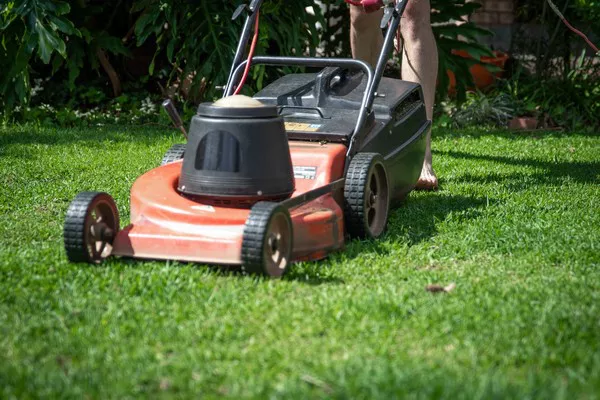Proper lawn mower maintenance extends beyond regular oil changes and blade sharpening; the type of gasoline you use significantly impacts the performance and longevity of your mower. Understanding which gasoline to use is crucial, especially with the wide variety of options available at the pump. This guide will delve into the types of gasoline best suited for lawn mowers, the importance of ethanol content, and additional tips for optimal mower performance.
Understanding Gasoline Grades
Gasoline is typically available in three grades: regular, mid-grade, and premium, classified by their octane ratings.
Regular Gasoline (87 Octane): This is the most common type and is usually sufficient for most lawn mowers. It is the least expensive and widely available, making it a convenient choice for many users.
Mid-Grade Gasoline (89 Octane): Slightly higher in price, mid-grade gasoline can be used in engines that demand better performance. While not necessary for most lawn mowers, it can be used if specified by the manufacturer.
Premium Gasoline (91-93 Octane): With the highest octane rating, premium gasoline is designed for high-performance engines. Unless your lawn mower specifically requires high-octane fuel, using premium gasoline may not offer any significant benefits and can be an unnecessary expense.
Ethanol Content and Its Impact
Ethanol is a renewable fuel made from various plant materials and is commonly blended with gasoline. While ethanol has environmental benefits, it can pose challenges for small engines found in lawn mowers.
E10 (10% Ethanol): Most gasoline available at stations is E10. This blend is generally safe for lawn mowers but can attract moisture, leading to phase separation and corrosion if the fuel sits in the tank for too long.
E15 (15% Ethanol) and Higher Blends: These blends are increasingly common but are not recommended for small engines. Higher ethanol content can cause significant engine problems, including damage to fuel lines, carburetors, and overall engine performance.
Ethanol-Free Gasoline: Also known as pure gasoline, this is the best choice for lawn mowers. It avoids the issues associated with ethanol blends, such as moisture absorption and corrosion. Although more expensive and less readily available, it ensures smoother operation and fewer maintenance issues.
Manufacturer Recommendations
Always refer to the lawn mower’s user manual for specific fuel recommendations. Manufacturers design engines to operate best with particular fuel types and octane ratings. Ignoring these guidelines can lead to decreased performance, engine knocking, and long-term damage.
Storing Gasoline for Lawn Mowers
Proper storage of gasoline is vital to maintain its quality and the performance of your lawn mower. Here are some tips for safe and effective fuel storage:
Use Approved Containers: Store gasoline in containers specifically designed for fuel storage. These containers should be made of materials resistant to fuel degradation and fitted with tight seals to prevent evaporation and contamination.
Add Fuel Stabilizers: If you plan to store gasoline for an extended period, consider adding a fuel stabilizer. These additives help prevent the fuel from breaking down and reduce the risk of gum and varnish buildup in the engine.
Store in a Cool, Dry Place: Keep gasoline containers away from direct sunlight and heat sources. A cool, dry environment minimizes the risk of fuel degradation and reduces the potential for accidents.
Limit Storage Time: Try to use stored gasoline within three months to ensure it remains fresh. If you must store gasoline for longer periods, regularly check and refresh the supply to maintain its quality.
Fuel Additives and Lawn Mower Performance
In addition to selecting the right type of gasoline, using fuel additives can enhance your lawn mower’s performance and longevity.
Fuel Stabilizers: As mentioned, these additives are essential for maintaining fuel quality during storage. They prevent oxidation and chemical breakdown, ensuring the fuel remains effective when it’s finally used.
Cleaners and Detergents: Additives designed to clean the fuel system can help remove deposits from fuel lines, carburetors, and injectors. Regular use can improve engine efficiency and reduce the likelihood of starting problems.
Octane Boosters: While generally unnecessary for lawn mowers, octane boosters can be used in specific scenarios where higher octane fuel is recommended or required by the manufacturer.
Common Fuel-Related Issues and Troubleshooting
Despite taking precautions, fuel-related issues can still arise. Understanding common problems and their solutions can help keep your lawn mower running smoothly.
Engine Knocking: This occurs when the fuel-air mixture detonates prematurely in the engine cylinder. Using the correct octane rating as recommended by the manufacturer can prevent knocking.
Starting Problems: Difficulty starting the engine is often related to stale or contaminated fuel. Ensure you use fresh gasoline and add a fuel stabilizer if the mower will sit idle for extended periods.
Poor Performance: If the mower runs rough or lacks power, it could be due to ethanol-induced corrosion or deposits in the fuel system. Using ethanol-free gasoline and regular fuel system cleaners can mitigate these issues.
Environmental Considerations
While the primary concern when choosing gasoline is the health of your lawn mower, it’s also worth considering the environmental impact.
Ethanol: While ethanol blends reduce reliance on fossil fuels and lower greenhouse gas emissions, the production of ethanol has its own environmental costs, including land use and water consumption. Balancing these factors is crucial.
Emission Regulations: Be aware of local regulations regarding emissions from small engines. Some regions have stricter guidelines that might influence your fuel choices and lawn mower usage patterns.
See Also What Type Of Oil For Kawasaki Lawn Mower Engine
Conclusion
Selecting the right type of gasoline for your lawn mower is essential for maintaining its performance, longevity, and reliability. Regular gasoline (87 octane) is typically sufficient for most lawn mowers, but always check the manufacturer’s recommendations. Avoid high ethanol blends like E15, and consider using ethanol-free gasoline for the best results. Proper storage and the use of fuel additives further ensure optimal engine performance. By paying attention to these details, you can enjoy a well-maintained lawn mower that provides reliable service for years to come.

